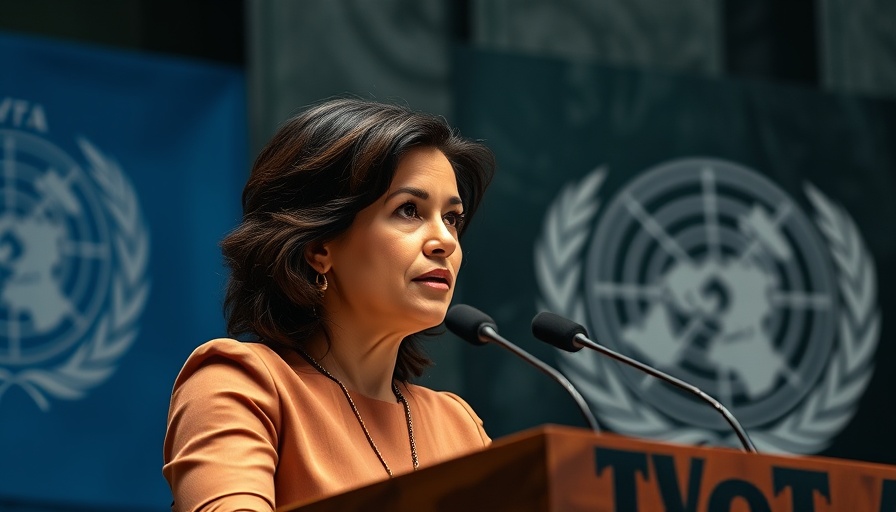
U.S. Sanctions Target a Key Critic of Israel's Actions
In an unprecedented move, the United States has imposed sanctions on Francesca Albanese, the U.N. special rapporteur for the occupied Palestinian territories, highlighting a significant escalation in the geopolitical conflict centered around Israel and Palestine. Secretary of State Marco Rubio announced that these sanctions stem from Albanese's outspoken criticism of Israel's military campaign in Gaza, particularly her collaboration with the International Criminal Court (ICC) in investigations concerning potential war crimes.
Understanding the Impact of U.S. Sanctions on Human Rights Advocacy
Albanese's work as a legal scholar and human rights advocate has drawn attention both for its content and the reactions it provokes. By labeling her investigations as a threat, the U.S. government signals to other international human rights experts that similar actions could lead to sanctions as well. This tactic aims to silence dissenting voices regarding Israel's controversial military actions, raising concerns among human rights organizations globally about the implications for freedom of speech and advocacy.
The Broader Context of U.S.-Israel Relations
The sanctions introduced against Albanese come in the wake of longstanding U.S. support for Israel and actions taken by the previous Trump administration to protect Israeli officials from prosecution. In recent weeks, the U.S. has also targeted officials at the ICC for issuing arrest warrants tied to Israeli leadership, further complicating the international legal landscape surrounding the conflict. Observers have noted that this continuation of pressure against the ICC and critics like Albanese serves not only to deter international scrutiny but also to reinforce a narrative that prioritizes geopolitical alliances over humanitarian concerns.
Francesca Albanese's Bold Statements and Their Ramifications
During her recent address at the U.N. Human Rights Council, Albanese declared Israel's actions to be “responsible for one of the cruelest genocides in modern history.” Such statements have crystalized her role as a controversial yet pivotal figure in the discourse surrounding the Israeli-Palestinian conflict. The choice of language employed by Albanese reflects a growing frustration among some humanitarian observers who feel that the international community has inadequately addressed the suffering in Gaza.
What Does This Mean for Future Investigations?
This development raises pressing questions about the future of international justice regarding war crimes and human rights violations. With the ICC now facing direct hostility from the U.S. government, the potential for accountability for actions taken during the recent conflicts may diminish. Albanese’s situation could deter other legal experts from engaging with the ICC, fearing similar repercussions, effectively chilling the pursuit of justice for victims of armed conflict.
The Echo of Albanese's Work in Global Human Rights Activism
Albanese’s experience also sheds light on a much larger issue—how human rights advocates operate under pressure. Activists worldwide are observing the United States’ attempt to intimidate a U.N. expert, viewing it as a warning against any critical examination of powerful nations’ actions. This tactic poses a risk not only for Albanese but also for other potential whistleblowers or advocates who risk their careers to uphold human rights principles.
Reactions from the International Community
Human rights organizations have expressed alarm over the sanctions, urging the U.S. to reconsider its stance. Many argue that imposing sanctions to silence critics serves to undermine the very ideals that democratic nations are supposed to represent: truth, justice, and accountability. The international community must grapple with the consequences of penalizing voices that contribute to essential dialogues on humanitarian issues.
As more information unfolds, it will be crucial to monitor responses from various stakeholders regarding U.S.-Israeli relations, the role of the ICC, and the fate of human rights advocates like Francesca Albanese.
 Add Row
Add Row  Add
Add 




 Add Row
Add Row  Add
Add 

Write A Comment